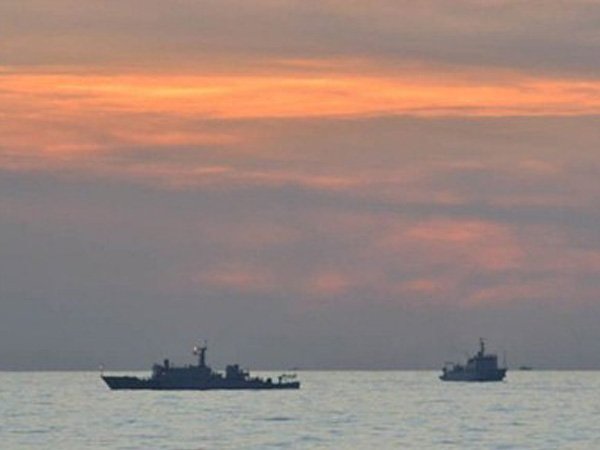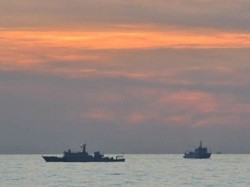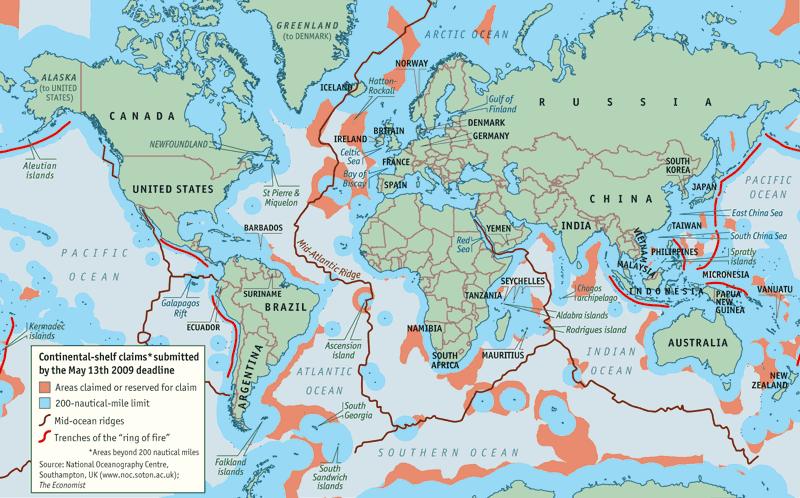
While no longer making regular headlines, the stand-off over the Scarborough Shoal/Panatag Shoal/Huangyan Island continues. Since April 10th both China and the Philippines have maintained a presence in the area, but one limited to civilian agencies – the Philippines Coast Guard on one side, and the Chinese Maritime Surveillance agency on the other.
Rather than trading literal broadsides, China and the Philippines have fought this dispute mostly through the figurative variety in the diplomatic and economic spheres. Philippines President Benigno Aquino suggested exploring joint ventures in the area and sent envoys to Beijing to attempt to resolve the crisis. China meanwhile issued travel advisories for the Philippines, halted tours, scaled back commercial flights, and quarantined incoming Philippine bananas on pest-control grounds.
Both nations have issued fishing bans on the Shoal area in the past week. The Chinese most likely issued the ban because their own fishermen will stay away until monsoon rains abate in the fall, and the stay-behind surveillance ship snow have a pretext in the ban for enforcement. The Philippines, meanwhile, supposedly issued their own ban in order to protect depleted fishing stocks, but this adversely affects the economies of local fishing communities that depend on fishing the Shoal grounds year-round to make their livelihoods.

With personal financial stability and pride at stake, it’s no surprise that civilians at times seem readier to push the situation towards a conflict than the two nations’ governments. In addition to the wide-spread nationalism (and minor protest rallies) whipped up on both sides and given voice in online forums, some 20 protestors and camera crew planned to make the case for the Philippines by setting up a protest on the shoal itself. They were persuaded by President Aquino to allow the government negotiators in Beijing a chance to achieve a constructive outcome.
Despite what my colleague believes about the benefits of the U.S. sitting on the sidelines of the U.N. Convention on the Law of the Sea, the Scarborough Shoal stand-off is an apt example of how not having ratified the treaty can hamstring the U.S.’ ability to bring pressure to bear on another country (China) for failing to live up to its treaty obligations in pursuance of a peaceful and diplomatic resolution. For while the Philippines is building a case for the International Tribunal for the Law of the Sea (ITLOS), one of the UNCLOS conflict-resolution mechanisms, China, another signatory, refuses to abide by any rulings of the tribunal.
With the stand-off as a backdrop, both sides are expanding their naval forces. The Philippine navy is set to take possession of another U.S. Coast Guard vessel Tuesday, the ex-USCGC Dallas, of the same type as its current flagship, the BRP Gregorio del Pilar. The Chinese Maritime Surveillance administration is also rapidly expanding in numbers (h/t Chuck Hill – CGBlog.org). This is the agency that intervened at the Shoal and prevented the Philippine navy from arresting the Chinese fisherman whose discovery began the current stand-off. While a nation with an expansive coastline and far-flung fishing interests has legitimate needs for a competent coast guard, the continuing Scarborough Shoal stand-off is just one more illustration that ships of this agency are enforcers of state policy, and Chinese maritime state policy has been rather uncompromising of late.




